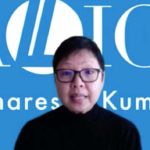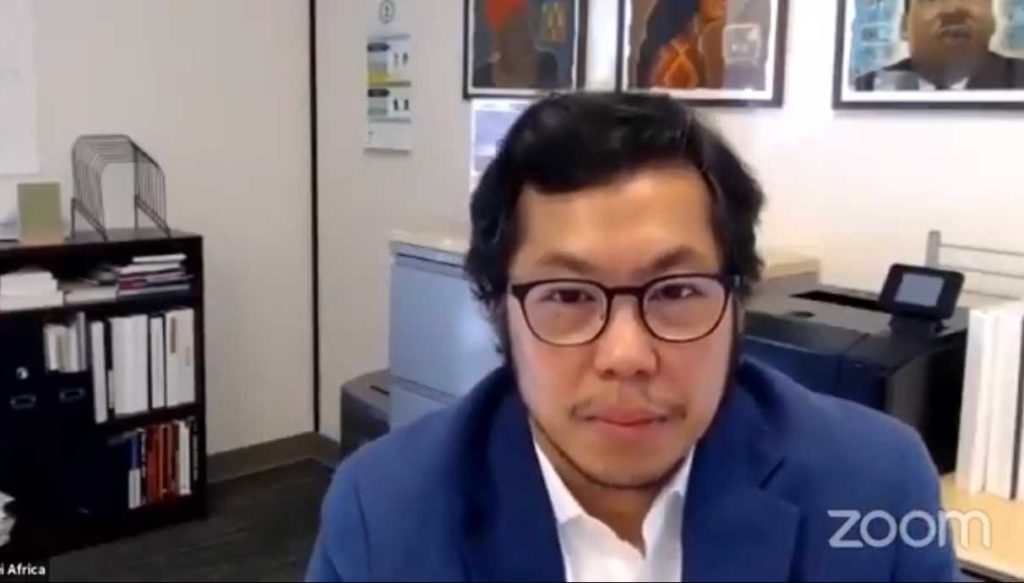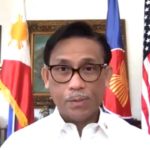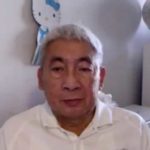‘New normal’ brings out best in Fil-Ams
SAN FRANCISCO — No one is immune to the deadly coronavirus, that’s about the most anyone is sure of when it comes to the microorganism that has brought the world to its knees.
And yet in the last four months of sheltering in place, Filipino Americans seem to be coping well with the crisis, as community advocates concluded on a new platform the Philippine Consulate General in San Francisco launched recently to model what the office calls “adapting to the new normal.”
Their famous resiliency has been Filipinos’ strongest defense, community leaders concurred in a recent ‘Tanong ni Congen,’ a digital face-to-face by Zoom and Facebook Live with Consul General Henry Bensurto Jr.
Inherent goodness
Filipinos have the “ability to find lightness and humor even in adversity,” said Dr. Jei Africa, director of the Marin County Behavioral Health & Recovery Services, who gave an overview of the pandemic’s impact on the population in general and Filipino Americans in particular. “Not to minimize the gravity of the situation, but the ability to smile and joke and see goodness lifts the Filipino spirit.”

Family violence prevention advocate Bettina Santos Yap discusses online resources available to those stranded with perpetrators of abuse. INQUIRER/CM Querol Moreno
That “goodness” pairs with deep faith for a powerful lifeline, said Bettina Santos Yap, founding president of the abuse prevention nonprofit ALLICE Alliance for Community Empowerment. She weighed in on the “compounded”‘ challenges for those in troubled relationships with intimate partners, family members or co-workers.
“Love, kindness and understanding come from Filipinos’ faith” whatever religion they belong to,” she opined. “We believe there is a higher power that looks after us.”
Pilipino Senior Resource Center (PSRC) executive director Gabby Moraleda said he was struck by the devotion to elders shown by younger Filipinos who stepped up at the most critical time when Center staff, themselves older adults, were unable to leave their own homes to attend to participants.
“The South of Market (SOMA) community, especially the youth, unified to bring care packs, masks, and canned goods to clients’ homes,” Moraleda said.
Who would have thought that 2020 would unfold as it did, forcing everyone to stop, take a breath and pay attention, watch each step, each touch now so rare.
Today, it’s important to communicate boundaries, inform others of what one is willing to do — or not do — for the sake of contact.
“We cannot change others’ behaviors but we can change ours,” said Africa. “We can wash our hands frequently, sanitize space, talk to children. Don’t assume everything is OK; remember people have died, others may be grieving. Be informed on everything — prevention, data, access to services, at what point to call the doctor.”

Dr. Jei Africa recommends physical distancing but urges remote social connection especially for isolated at-risk sectors. INQUIRER/CM Querol Moreno
Be responsible, he added. “We have not found a vaccine. Do not listen to unofficial sources and pass the information to others,” which is dangerous.
Change
Words like “pivot” began peppering vocabularies to signify drastic changes at home, in school or at work since March when. “Vulnerable” and “underlying conditions” popped up in reference to those with no choice but to stay in to avoid getting infected.
Like masks, the adjectives “essential” and “front-line” became ubiquitous for activities and careers required to maintain a sense of normalcy. What was once the norm evolved as it did in previous crises, though none more mysterious, all-encompassing and life-threatening than the Covid19 pandemic.
Monday and Thursday fellowships at PSRC were suspended as California Gov. Gavin Newsom and California Public Health Director Dr. Sonia Angell mandated shelter in place and business closures to prevent spread of the virus.
Moraleda said he and his staff, mostly Baby Boomers, raced to familiarize themselves with new technology to continue serving their clients remotely.
“We called each one to see how they were doing, make sure they were following safety precautions.”
Connection is vital
Connection, virtual or physical, is critical for all human beings and even more so at this time, said Africa, a licensed psychologist.
“We’re social beings. The shelter in place order created isolation for many, affecting mental health quite a bit. Not being able to go wherever and whenever we wish can lead to depression.”

Consul General Henry Bensurto Jr. asks the questions burning in most constituents’ minds, as the consulate pivots to a new way of communicating with the Filipino community. INQUIRER/CM Querol Moreno
Africa noted that Filipinos tend to be demonstrative, shaking hands, trading hugs and kisses to greet each other: “Imagine that physical and social connection not there because of caution to prevent the virus from spreading.”
For that reason, reaching out to those stranded at home due to chronic conditions raises the morale of the shut- in. The mere act of getting a call, hearing words of kindness “elevates cortisol,” the hormone that helps the body respond to stress. “It makes humans feel good.”
Social connection is vital, Africa reiterated. “Physical distance must be observed” but social distancing may be detrimental to the mental wellbeing of the already vulnerable.
Fear is another emotion raging during the pandemic, according to the advocates.
Because little is known about the coronavirus and the illness it causes, the public lives in “constant fear,” wondering “Will I get it? Will I spread it?”
Fear overcomes those who are at high risk with chronic conditions or have lower income and therefore have little or no access to a health care provider, Africa said. Fear leads to stress, “changes the body quite significantly” and may also lead to depression.
Depression emerges from desperation. For those in abusive relationships, trying to get help heightens the risk they face.
“They’re stuck at home with the perpetrator, who may take advantage of their proximity and subject the survivor to various attacks – verbal, emotional, psychological or physical,” said Santos Yap. “Fortunately survivors have online directories to access a counselor, but they need to be careful to do so without the knowledge of the perpetrator. People who abuse often escalate attacks when they learn the survivor is trying to take control of their situation.”
Uncertainty and fear, too, gripped Moraleda’s participants at the beginning of the shutdown.
“We were really unprepared and had to scramble the first two weeks” to plan response. “But Filipinos are used to adversity, even if this is different. Now our clients attend chat groups, having learned how to contact through their phones.”
Consular services
In lieu of meetings and seminars typically staged at the consulate to discuss US and PH issues of the day to Filipinos in Northern California and the western region, ‘Tanong ni Congen’ is a live online parley on Zoom and Facebook Live. The Consul General himself, Henry Bensurto Jr., hosts the program scheduled 10 a.m. Wednesdays, Pacific Standard Time.

Gabby Moraleda raced to learn digital platforms to continue serving the older population. INQUIRER/CM Querol Moreno
The program occasionally features Deputy Consul General Raquel Solano, Consul Vanessa Bago-Llona, Consul Jed Martin Llona, and Consul Dominic Xavier Imperial.
“It’s the consulate’s way of reaching out to the Filipino American community, where the community is given information and updates on consular matters and advisories,” said Bago Llona.
Bago Llona said the program aims to showcase “‘other aspects of the Consulate’s work, including promoting culture or cultural diplomacy. The Consulate aims to reach out to the younger generations and inspire them to take pride in their culture and heritage.”
The episode focusing on how Filipinos are adapting to the “new normal” has had 5,300 views on Facebook from around the world, said Bago Llona. The show had covered the status of Philippine Airlines flights to and from Manila, Philippine cuisine in this country, and the Pistahan festival next month.
After the livestream, the Tanong Ni ConGen episodes remain on the Consulate’s Facebook page, and are also available on the Consulate’s YouTube channel: SPARK CONNECT EMPOWER SF.
At press time the consulate issued an advisory suspending in-person applications for consular services with the Governor and SF Mayor London Breed’s order closing “non-critical sectors.” Appointment for passport renewal and release, dual citizenship, notarization and social security matters are cancelled “from July 23 until further notice.”
The consulate is accepting applications of extension of passport validity, civil registry and dual citizenship by mail and email. Constituents are urged to contact the consulate at 415-433-6666 or https://www.philippinessanfrancisco.org/philippines-sf/contact-us-sf/for details.

